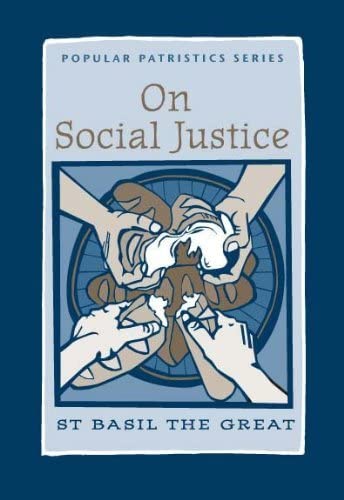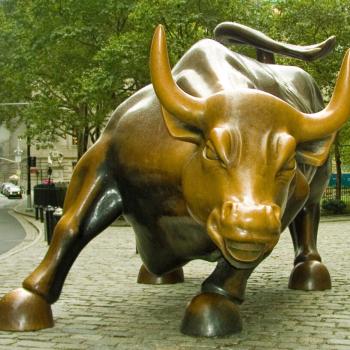Merry Christmas and Christmas season! As I have been preparing to write my first book (more news on that to come), I have begun to put together some of the thoughts that I have been ruminating on for the last year. The most significant of those is this: that the history of race and racism is fundamentally a history of greed. In many evangelical (and non-Christian) circles, the narrative tends to be that race and racism are best battled by resisting pride. This can especially be seen in various industries, whether for or non-for-profit. The language of “cultural humility” bears this out: the issue, it would appear, is hate and ignorance, which is remedied by getting to know people and being aware of your own context and cultural biases. Such a consideration, however, remains at the surface level. We must go deeper.
Race and racism are not fundamentally concepts of feeling. They are concepts of material exploitation and domination. If this is true, then our resistance of them must not merely be ideological but material. This means that the issue is not so much hatred as it is pleonexia, translated variously as greed or covetousness. Race and racism were created because some people wanted more resources, wanted them cheaply, and were willing to do whatever was necessary to accumulate those resources.
That’s a teaser for the year to come but for this Christmas season, a season where we consume at alarming rates yet also succumb to seasonal depression, I want to offer some reflections from a fourth-century source on greed that we would all do well to consider.
St. Basil the Great, one of the Cappadocian Fathers and one of the most significant Trinitarian minds in Christian history, was also an incisive ethical mind. Central to his preaching and his pastoral work was care for the poor. Basil did not merely preach it though. He lived it. Understanding, as we ought, that the body of Christ is meant to be an alternative political, economic, and spiritual community, Basil, through his bishopric, built such a community, which would later be known as the Basiliad, notably the first Christian hospital and the first public institution of its kind. Why would Basil do this? Because he took to heart the Scriptural injunctions against greed.
Perhaps one of his most significant exegetical interventions, in this vein, is his interpretation of Christ’s command to the rich young man. Matthew 19:16–22 outlines Jesus’s conversation with a rich young man who approaches him and asks what he needs to do to gain eternal life. Jesus’s answer is straightforward: “If you want to be perfect, go, sell your possessions and give to the poor, and you will have treasure in heaven. Then come, follow me.” The narrative ends, however, with the young man going away sad, “because he had great wealth.” Historically, there have been two prominent streams of thought considering the interpretation of these verses. The first is a literal interpretation, the one that St. Antony heard: Go, sell everything you have, and follow Jesus. Hearing these words terrifies many Christians today (myself included!). Is Jesus really saying these words, as well as what follows—that is, that it is impossible for a rich man to enter into the Kingdom of God? Monastic communities think so and have attempted to live by these words. But this has also led to a distinction in Western Christian circles between “precepts” and “counsels,” where the former are for everyone but the latter are only for top-tier Christians, who for much of Christian history have been monastic men and women. Such an approach is insufficient…plus it creates a lot of anxiety!
It is perhaps this anxiety that created the grounds for the second interpretation, notably given by Clement of Alexandria in the early 3rd century. It is this interpretation that most American Christians are more comfortable with: that what Jesus is saying is not to be attached to your wealth. Having wealth is perfectly fine as long as you are not unduly attached to it. This eases the conscience of those who live in the richest nation in the world. Yet, in its own way, it also does violence to the text, as it focuses attention squarely and exclusively on wealth’s effect on the individual soul rather than its effect on systems that constrict and kill.
Basil offers a wiser interpretation than both of these options. In his sermon, To the Rich, he indicts the young man of the text for disobeying the greatest commandment: to love one’s neighbor as oneself. In fact, according to Basil, the accumulation of wealth is actually directly contrary to that commandment, leaving him to make the jarring declaration:
“Those who love their neighbor as themselves possess nothing more than their neighbor; yet surely, you seem to have great possessions! How else can this be, but that you have preferred your own enjoyment to the consolation of the many? For the more you abound in wealth, the more you lack in love.” (Basil, To the Rich, 1)
If there is one realm where we are very quick to self-justify, it is in our use of our finances. To those who increase their standard of living as their income increases, Basil has other words: an entire sermon in fact on Luke 12:16–21, the parable of the rich man who decided to tear down his barns and build larger ones to fit all of his stuff, but before he could, God demanded his life. In these blistering anti-greed sermons, Basil lays out a simple and devastating norm: that whatever we have in excess of our need belongs to the needy. Basil’s words in the fourth century are still true.
That means, in my estimation, that the interpretation that makes you most anxious is actually the right one. To love our neighbor as Christ commands, it means we must strive and invest in equity and equality. As long as others are in need, we ought not bathe in plenty. This is a hard saying, but it is one that I (and probably you) need to hear.
I would encourage you to read Basil’s words for yourself, especially this Christmas season, collected in a volume titled On Social Justice. It will wreck you. But if you heed it, it will reap rewards. It will also place you on the first steps to building a deeply anti-racist ethos in your life and in your community. Instead of pulling down your barns to build larger ones, heed these words of Basil:
The treasuries of injustice well deserve to be torn down. With your own hands, raze these misbegotten structures. Destroy the granaries from which no one has ever gone away satisfied. Demolish every storehouse of greed, pull down the roofs, tear away the walls, expose the moldering grain to the sunlight, lead forth from prison the fettered wealth, vanquish the gloomy vaults of Mammon. (Basil, I Will Tear Down My Barns, 6)
















